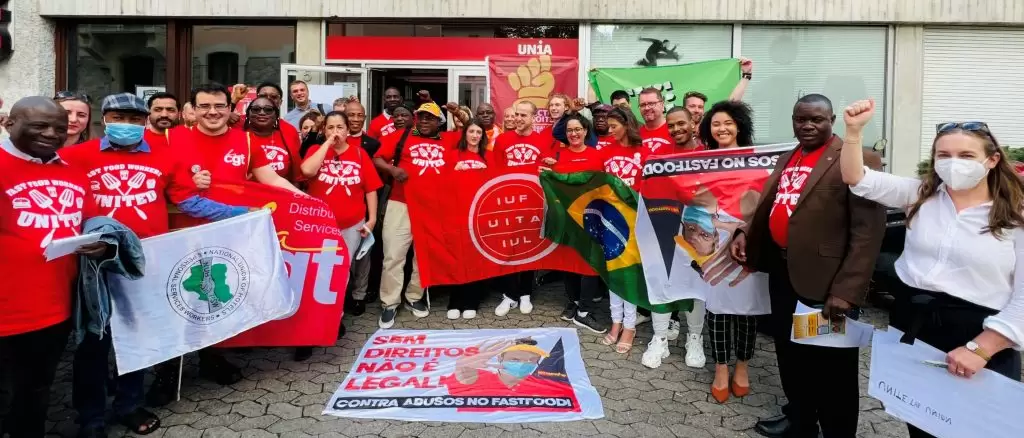Fast food workers and union representatives from 4 continents and 20 countries joined together in Geneva on June 7 to participate in a number of IUF events to promote occupational safety and health in the fast food sector. Fast food workers from Brazil, United States, Serbia and Switzerland spoke at an IUF-sponsored side event to the International Labour Conference to share testimonies of sexual harassment, oppressive workloads, slip injuries and oil burns among other common hazards in the sector. The IUF, together with our Swiss affiliate UNIA and the local Geneva union SIT, then took to the streets of Geneva to protest in front of local fast food chains.
While the pandemic made it impossible for a number of our sisters and brothers to join the events in Geneva, many sent messages of solidarity including IUF affiliate FSPM in Indonesia:
- On June 10, the International Labour Conference voted to upgrade Occupational Safety and Health to a fundamental principle and right at work which creates a new powerful tool for trade unions to pressure companies and governments to make workplaces safe and healthy for workers
- Since the first union election at a Starbucks in New York state in the US, workers have filed more than 250 petitions for union elections with more than 70 successful elections to date
- On May 20, McDonald’s was hit with a record fine for tax fraud in France further proof of the fast food giant’s toxic corporate culture which allows not only elaborate tax avoidance schemes, but also hazardous working conditions, sexual harassment, racism, union-busting and in many cases poverty wages
IUF General Secretary Sue Longley stated, “We know that Occupational Safety and Health is a real challenge in fast food sector; oil burns, slip and fall injuries and sexual harassment are all avoidable workplace hazards. The global labor movement pushed to make occupational safety and health a fundamental principle and right of work, and now, this important win gives us a real opportunity to put pressure on companies and governments to keep people safe on the job.”
